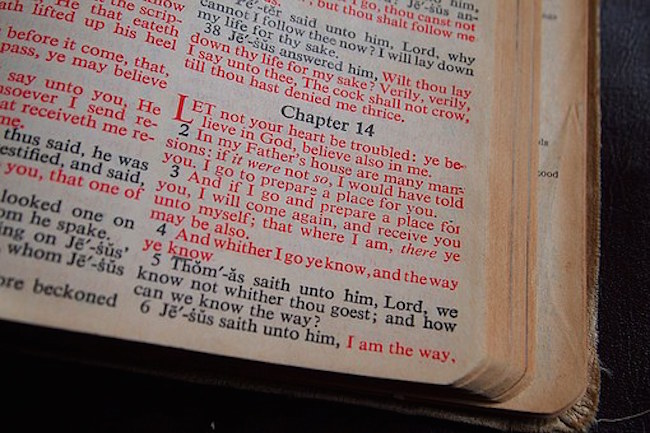Jesus saves – What does this mean? from Compelling Truth
At one time or another, most people in the Western world have heard the phrase “Jesus saves.” What does this phrase really mean? Who is Jesus? Why do we need to be saved? How does Jesus save? From what? Is this just some kind of church marketing scheme to get us to give them our money? Or does it have something to do with American politics? Unfortunately, the phrase “Jesus saves” has undergone some cultural hijacking which has obscured its meaning. The truth is, the words “Jesus saves” might be the most important words you ever hear.
Jesus lived about 2,000 years ago in Israel. He was a Jew, and lived and worked among Jews. He was an unremarkable man from an unremarkable family. When He was about thirty years old, He stood up in the local temple and quoted a passage from a Jewish prophet called Isaiah. He said:
“The Spirit of the Lord is upon Me,
Because He has anointed Me
To preach the gospel to the poor;
He has sent Me to heal the brokenhearted,
To proclaim liberty to the captives
And recovery of sight to the blind,
to set at liberty those who are oppressed;
To proclaim the acceptable year of the Lord.” ~Luke 4:18 NKJB
This prophecy was known by everyone in Jesus’ audience as a prophecy about the Messiah—Israel’s future king who would set them free and make their nation great. Jesus shocked them all by saying, after He had quoted the passage, “Today this Scripture has been fulfilled in your hearing” (Luke 4:21; see verses 16–30 for the full account). This began a conflict between Jesus (who claimed to be Messiah) and the Jews (who eventually betrayed Him to the Romans and had Him executed by crucifixion).
The Jewish Pharisees (the religious leaders of that day) hated Jesus, mainly because He told them that their understanding of God was all wrong. They expected the Messiah to be a ruler, a king who would help them defeat the Romans. But Jesus was interested in saving people for eternity. They expected a Messiah who was like themselves: passing out rules, but unwilling to help others (Luke 11:46); glorifying their own morality while treating others with contempt (Luke 18:9–14). But Jesus was interested in forgiveness, healing the sick, and lifting up those who were failing (Mark 2:5; John 3:16–18; Mark 2:17).
Jesus claimed to be the Messiah, and He claimed to be God (John 1:1–3; John 8:58). He backed up that claim by rising from the dead after three days in the tomb, and appearing to a crowd of witnesses and disciples (Luke 24:1–12; 36–49), many of whom would later face a violent death rather than deny that Jesus had risen from the dead.
So, why does this matter to us, today?
Religion today is not much different than it was back in Jesus’ time. There are a lot of rules to follow in order to appease a deity. When faced with religion, people usually either a) delude themselves into thinking they can follow all the rules, do the right thing, etc. and then judge anyone who cannot do the same, or b) turn away from religion because they realize they are not able to follow the rules. The words “Jesus saves” speak to this problem. Jesus was the Creator God and displayed all of the same character traits as God Himself (Hebrews 1:3). He came to forgive the sins of men; He came because “it is not the healthy who need a doctor, but the sick” and He came “not to call the righteous, but sinners” (Mark 2:17 NIV). What this means is that if you need salvation, Jesus saves.




